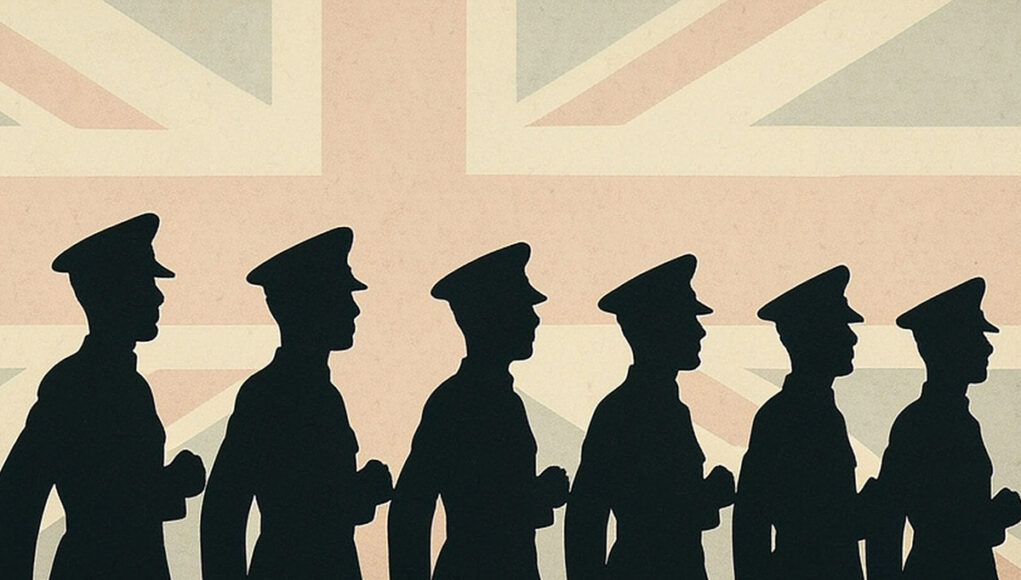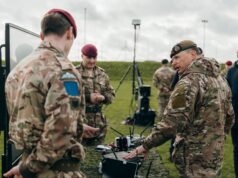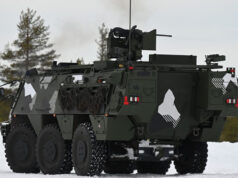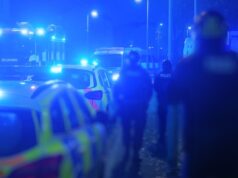The Conservative MP has delivered a lengthy adjournment debate warning that forthcoming Northern Ireland legacy legislation risks entrenching “vexatious lawfare” against veterans while ignoring what he described as decades of de facto amnesties for paramilitaries.
Opening the debate, he argued that Parliament must approach the coming legislation “with the real facts of what happened in Northern Ireland” and insisted that the State has “a moral obligation to protect brave soldiers who defended our freedoms in the most testing circumstances.”
He framed the issue as one of principle, including the principle that “we do not abandon those who acted under lawful instruction” and “we do not risk weakening the effectiveness of our Armed Forces.”
He rejected claims made in a July Westminster Hall debate that “the only thing that grants immunity to former members of the IRA is the Northern Ireland legacy Act as it stands.” Calling that assertion “plain wrong,” he argued that past political decisions had long created a “de facto amnesty for crimes committed during the Troubles.”
The MP cited early prisoner releases under the Good Friday Agreement, which he noted saw “483 terrorists… released from prison early,” including “143… sentenced to serve life sentences.” He highlighted at least “16 terrorists… granted the Royal Prerogative of Mercy,” naming cases such as Gerry Kelly and those involved in the killing of SAS Captain Herbert Westmacott.
He also criticised the former “On the Run” administrative scheme, claiming that at least “156 people received an individual letter of comfort” and that some of those named were “involved in 295 murder investigations.” Quoting from one such letter, he said it stated: “You would not… face prosecution for any such offence should you return to the United Kingdom.”
Citing the collapsed Hyde Park bombing prosecution of John Downey, he read the judge’s conclusion that “it offends the court’s sense of justice and propriety to be asked to try the defendant.” He argued this demonstrated a functioning amnesty regardless of legal distinctions.
The MP also contrasted limited convictions since 1998 with the scale of Troubles-era killings, stating that “five convictions versus 3,000 killings” underlined the persistence of de facto immunity for paramilitaries. He criticised restrictions on the use of decommissioned weapons for forensics and the two year sentence cap introduced in 1998.
A significant portion of the speech focused on inquests involving veterans, which he described as “one sided… weaponised by Sinn Fein in their attempt to rewrite history.” He criticised the 2006 change to the legal definition of a victim, arguing that it allowed “a proven murderer killed in the attempt to carry out another murder” to be legally classed as a victim. He cited the Loughgall incident, saying that under current arrangements “the 2006 Order means those dead terrorists are deemed ‘victims’.”
He recounted the experience of a veteran at the Coagh inquest and referenced a recent judicial review described by a judge as “ludicrous… funded as it is by legal aid.” He warned that under the Government’s proposals, veterans would “remain subjects of suspicion and remain victims of this vexatious lawfare machine.”
The MP also criticised the role of the Irish Government, arguing it is being treated as a neutral party despite, in his view, historical failings. Citing multiple cases including the Smithwick Tribunal, he claimed that evidence “showing the Republic provided sanctuary to IRA terrorists” should inform any legacy framework.
He quoted a letter from nine retired generals published on Remembrance Day, which warned that the legacy proposals risk making the bill “morally incoherent,” treating “those who upheld the peace and those who bombed and murdered… as equivalent actors.” The generals also said “highly trained members of special forces are already leaving the service” and argued that “this lawfare is a direct threat to national security.”
Concluding, the MP said the Government must heed those warnings, stating that mishandling legacy issues “brings injustice for those who served our country with honour and threatens the future effectiveness of our armed forces.” He added that hostile states were “watching how we handle this matter,” quoting the generals’ warning that “our closest allies are watching uneasily, and our enemies will be rubbing their hands.”














Yet another Two Tier system. I for one will never vote for Keir and his cronies.
Mmm, look at Starmers “chief advisor”. His grand daddy won a Provo “medal”. Whilst ever 40% of MP’s are lawyers? You will have lawfare in most areas of policy. Politicians are two faced, no secret in that. A sop to Republicans this is. What kind of country rewards/protects terrorists but pursues veterans for perceived “crimes”? A sick one.
I did not serve in NI on Op Banner, but many of my friends did. Most, if not all, would have thought that if an officer or soldier opened fire having followed the ROE (Yellow Card) that they would have done the right thing and be supported and protected by the State. It is only recently that I have discovered that the Yellow Card had no legal status, and that soldiers who complied with it before opening fire could still be prosecuted. I find that shocking.
Yep it’s a nightmare actually.. military rules do not protect from legal prosecution..but it is the same in many situations with a lot of professionals who make life and death type decisions..in the end you can always be hung over your personal actions and decisions no mater if the instructions come from an executive agency of HMG.
Sir David is, of course by any objective standard, completely right. This a Charter for the benefit of I.R.A.-S.F. to claw something back from its historic defeat. I particularly warm to Sir David’s remarks regarding the government of the Irish Republic. The stance of successive administrations in Dublin during the terror campaign was both duplicitous and hypocritical.